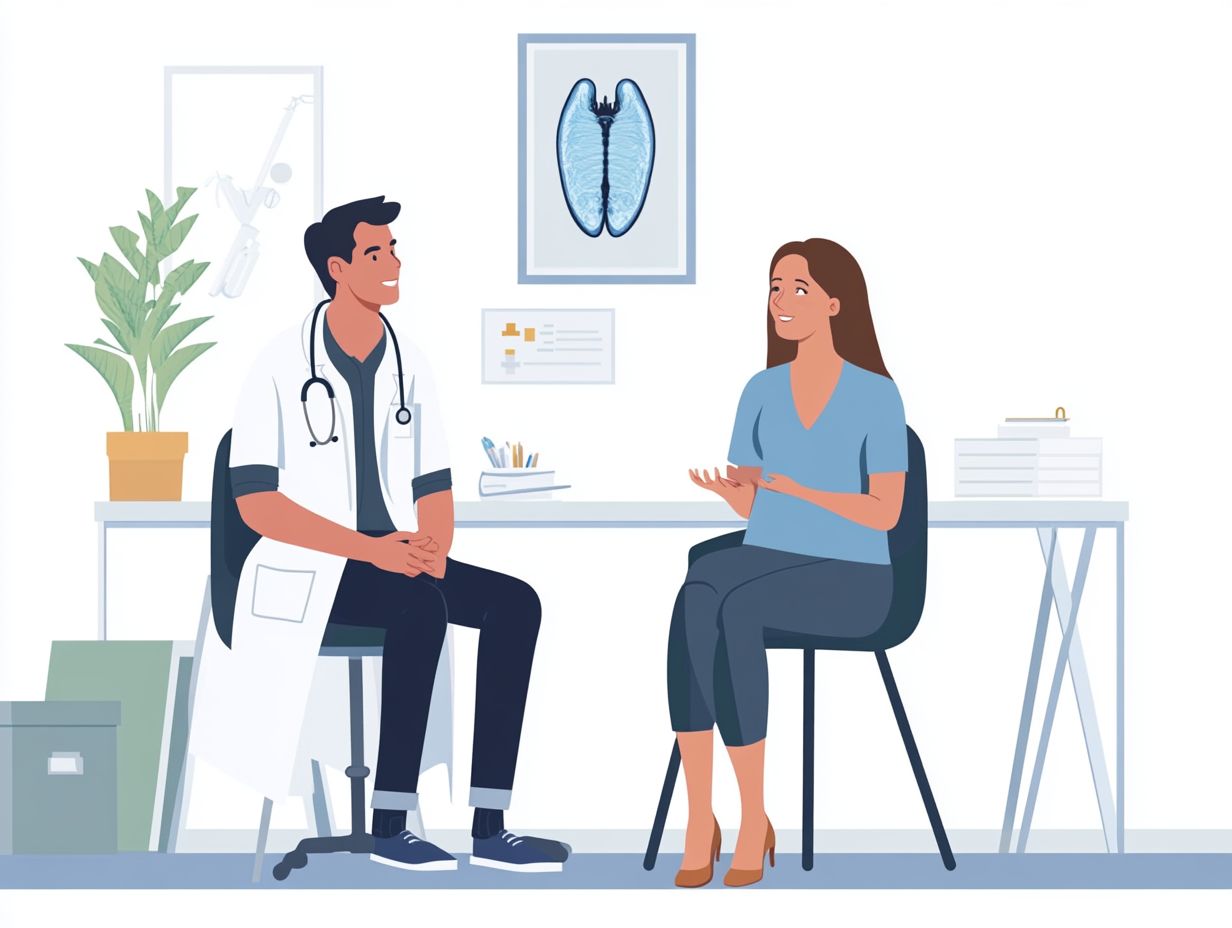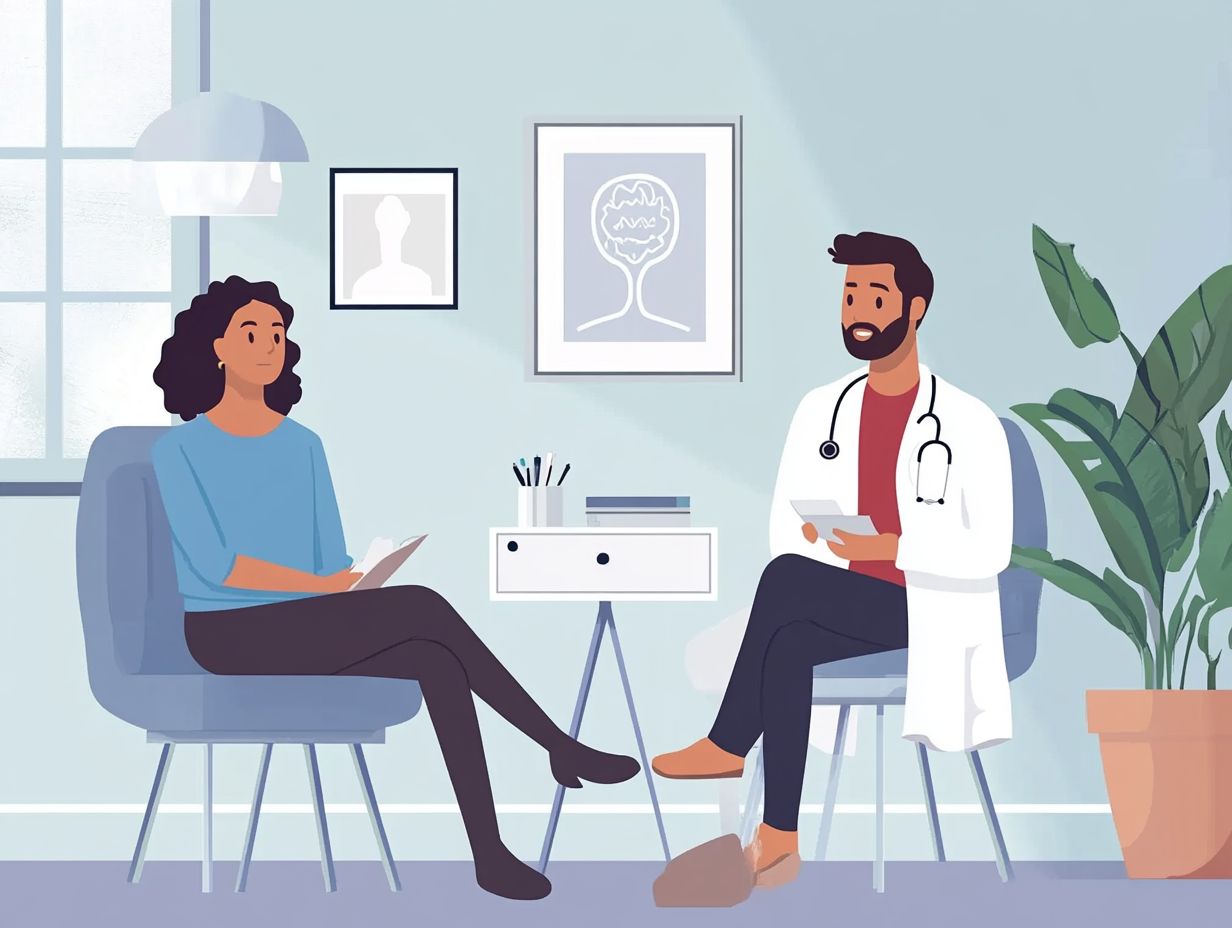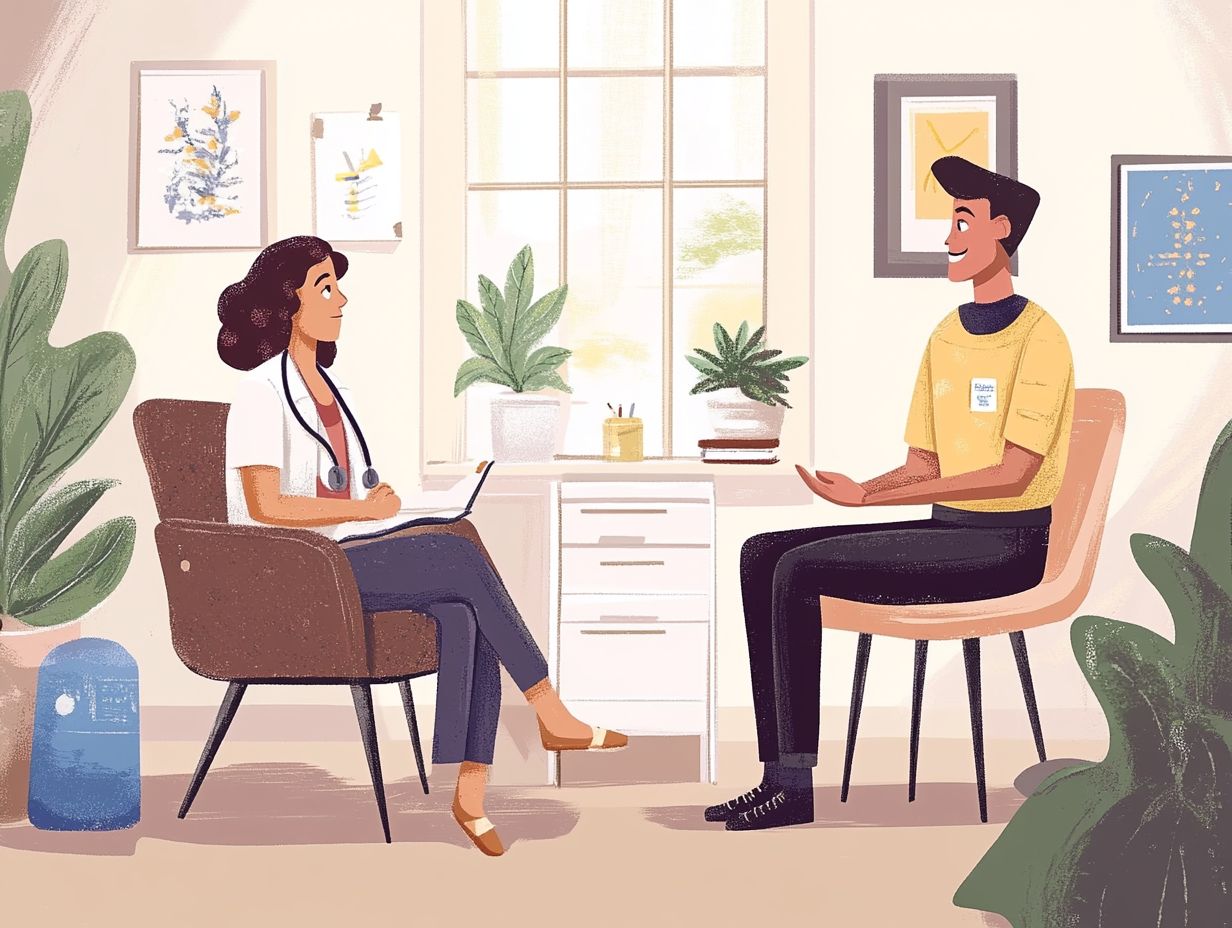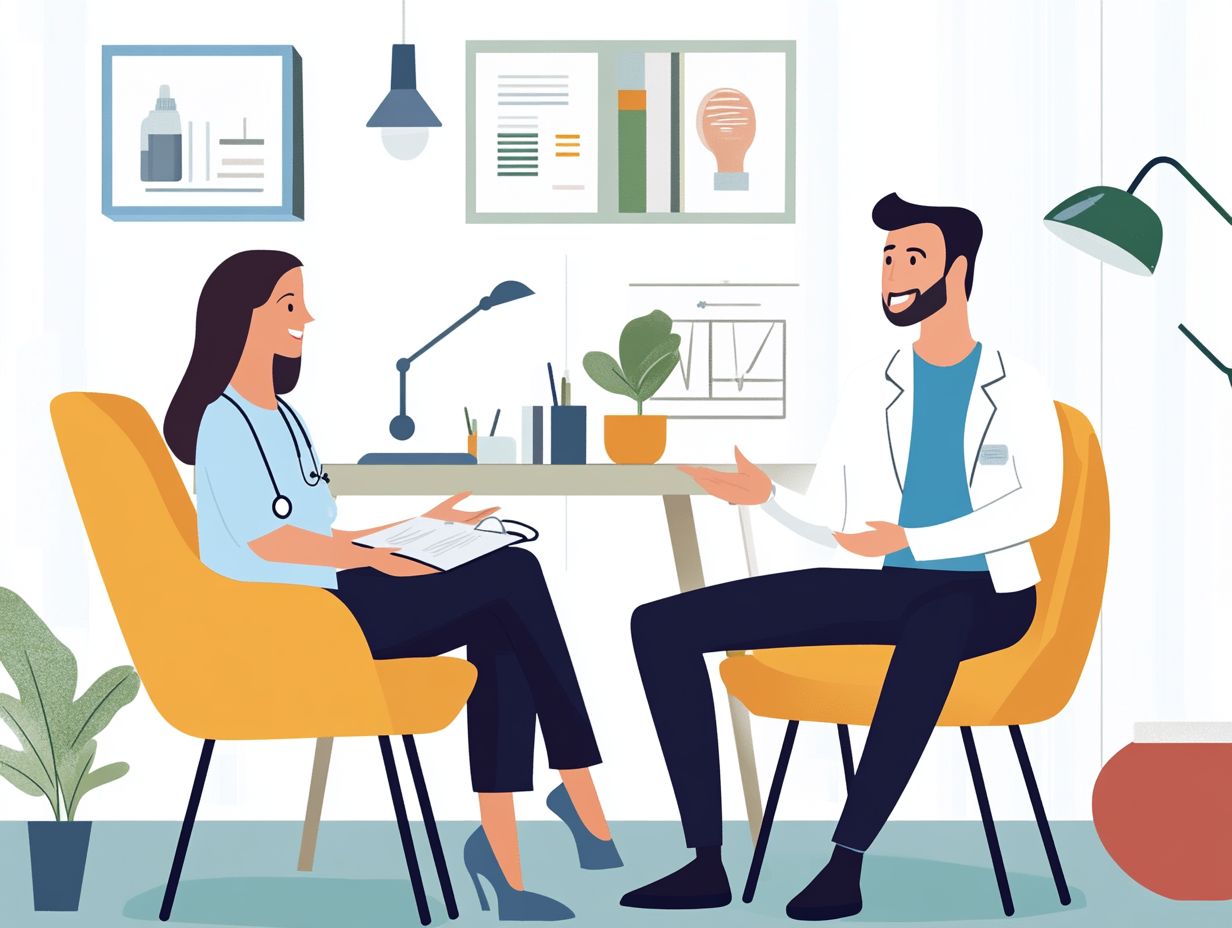The Significance of Initial Consultations in Treatment
Initial consultations are pivotal in shaping the course of your treatment journey. They offer a unique opportunity for you and your practitioner to build a solid foundation, ensuring that everyone aligns on your needs and expectations.
This article delves into the essence of initial consultations, highlighting their significance and what you can expect during your first visit. You’ll also find valuable tips on how to prepare and communicate effectively, empowering you to maximize your experience.
Explore how these sessions can set the stage for successful outcomes.
Contents
- Key Takeaways:
- Understanding Initial Consultations
- The Importance of Initial Consultations
- What to Expect During an Initial Consultation
- Preparing for an Initial Consultation
- Making the Most of Your Initial Consultation
- Frequently Asked Questions
- What is the significance of initial consultations in treatment?
- How long does an initial consultation usually last?
- Do I need to prepare for an initial consultation with my mental health provider?
- What can I expect during an initial consultation, especially regarding assessment?
- Why is it important to be honest during an initial consultation to build a therapeutic alliance?
- Can I change mental health providers after an initial consultation?
Key Takeaways:

- The initial consultation is the first step in any treatment process and involves a thorough evaluation of the patient’s needs.
- This consultation is crucial in building a strong foundation for treatment and establishing effective communication and collaboration between the patient and healthcare provider.
- To make the most of your initial consultation, be prepared by bringing necessary documents and openly communicating your concerns and expectations with your mental health provider.
Understanding Initial Consultations
Initial consultations are the starting point for your mental health care, laying the groundwork for a trusting relationship between you and your therapist. During this first session, your clinician gathers essential information about your history, assesses your unique needs, and crafts a treatment plan tailored to your emotional challenges and therapy goals.
This process prioritizes your patient safety, confidentiality, and ethical practice. By adhering to clinical guidelines and using methods that have been proven to work based on research, mental health providers can optimize your patient outcomes and enrich your overall therapeutic experience.
What is an Initial Consultation?
An initial consultation is a carefully structured meeting between you and your therapist, marking the beginning of your mental health treatment journey. This session involves a comprehensive assessment that delves into your emotional and psychological needs.
The therapist’s primary role is to gather relevant history about you, including your past experiences, current symptoms, and any previous interventions. By utilizing clinical guidelines and tailored assessment techniques, the therapist creates an environment that fosters effective communication, ensuring you feel heard and valued.
This process leads to the development of a personalized treatment plan specifically designed to address your unique challenges. Ultimately, the goal is to establish a trusting relationship that encourages your engagement and propels progress in your mental health journey.
The Importance of Initial Consultations
Initial consultations are crucial in establishing a strong trusting relationship between you and your mental health provider. This connection significantly influences your outcomes and enhances the effectiveness of future psychotherapy sessions.
Building a Foundation for Treatment

The initial consultation is a crucial first step in your treatment journey, laying the groundwork for a strong therapeutic alliance through effective rapport building between you and your therapist.
This vital phase sets the tone for your entire therapeutic experience, where trust and safety become the cornerstones. By employing attentive listening and validating your experiences, therapists can create a welcome atmosphere that encourages you to communicate openly.
Using specific therapeutic techniques tailored to your unique needs like reflective listening or open-ended questioning fosters greater engagement and allows for a seamless exploration of your personal challenges. This patient-centered approach not only enables you but also reinforces your commitment to the therapeutic process.
Are you ready to take the first step in your mental health journey? Schedule your initial consultation today to begin your path towards healing.
Evaluating the Patient’s Needs
Evaluating your needs during the initial consultation is essential for identifying the most suitable therapeutic approach. This helps in crafting a personalized treatment plan.
This process involves gathering detailed information. This includes your mental health history, current symptoms, lifestyle factors, and social support systems. Mental health providers often use common assessment tools that follow clinical guidelines. These evaluations are vital; they assist in identifying immediate challenges and uncover underlying issues that may need attention.
Such assessments shape the clinician’s decisions about therapeutic methods and the best ways to engage with you. This nurtures a more effective therapeutic relationship (the connection between you and your therapist).
What to Expect During an Initial Consultation
During your initial consultation, expect a thoughtfully structured environment. Here, the mental health provider will expertly guide you through standard procedures and questions designed to gain insight into your emotional and psychological state.
Typical Procedures and Questions
Your initial consultation typically involves a series of assessments and questions. These aim to gather a comprehensive understanding of your history and emotional landscape.
This journey often includes standardized questionnaires, open-ended discussions, and targeted inquiries. These delve into various aspects of your life, such as emotional challenges, personal relationships, and coping mechanisms. The practitioner pays attention to your verbal and non-verbal cues, helping them gauge your feelings and comfort level.
Clear communication is essential; it establishes a safe space where you feel valued and understood. By fostering a dialogue rooted in empathy and attentiveness, these initial procedures set the stage for effective treatment. They also cultivate a therapeutic alliance crucial for your healing journey.
Preparing for an Initial Consultation

Getting ready for your initial consultation is essential for both you and your clinician. This preparation ensures that the session is focused, productive, and sets the stage for building a foundation of trust and effective communication.
What to Bring and How to Prepare
For your initial consultation, it s important to bring relevant documents. This includes your mental health history, medication lists, and specific therapy goals. This will enable a thorough assessment.
It s beneficial to prepare a list of questions about the treatment process. This encourages open communication and ensures that you re fully informed. Bringing supportive materials, such as journals or notes on your experiences, can provide valuable context for your clinician.
This level of preparation enhances the clinician’s ability to provide tailored care. It also enables you to actively engage in shaping your treatment plan. By clearly outlining your individual needs, you embark on a more personalized journey toward healing and well-being.
Making the Most of Your Initial Consultation
To truly maximize the potential of your initial consultation, prioritize effective communication and collaboration with your therapist. This not only elevates your overall experience but also cultivates a strong, positive relationship between you and your therapist.
Tips for Effective Communication and Collaboration
Effective communication during your initial consultation lays the groundwork for a successful collaboration with your therapist. This ultimately enriches your patient experience by fostering clearer clinical reasoning and understanding.
To make the most of this opportunity, take some time to reflect on your feelings and any specific issues you’d like to address before the meeting. Writing down your thoughts or concerns can serve as a valuable roadmap during your conversation. Equally important is actively listening; engage with your therapist s insights and don t hesitate to ask clarifying questions if something feels unclear.
This two-way interaction cultivates an atmosphere of patient trust and encourages your therapist to respond thoughtfully. This makes the entire consultation more productive and tailored to your unique needs.
Frequently Asked Questions

What is the significance of initial consultations in treatment?
Initial consultations are crucial in treatment. They allow therapists to gather important information about a patient’s history, current concerns, and therapy goals. This helps in creating an individualized treatment plan that caters specifically to the patient’s needs.
How long does an initial consultation usually last?
The length of an initial consultation can vary depending on the therapist and the patient’s needs. However, it typically lasts anywhere from 45 minutes to an hour.
Do I need to prepare for an initial consultation with my mental health provider?
While it is not necessary to prepare, it may be helpful to have a list of questions or concerns ready to discuss with the therapist. This ensures that all important information, including client needs and emotional issues, is covered during the session.
What can I expect during an initial consultation, especially regarding assessment?
During an initial consultation, the therapist will ask questions about your client history, medical and mental health history, current symptoms, and therapy goals. They may also conduct clinical assessments or evaluations, which are tests to better understand your situation.
Why is it important to be honest during an initial consultation to build a therapeutic alliance?
Being honest during an initial consultation is crucial for the therapist to fully understand your concerns and create an effective treatment plan. Being open helps build a strong connection with your therapist. Withholding information or being untruthful can hinder the progress of treatment.
Can I change mental health providers after an initial consultation?
It is possible to change mental health providers if you feel that the therapist is not a good fit for you. However, it s a good idea to discuss your concerns with the therapist about patient outcomes and communication before making a decision to switch.






